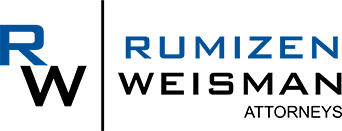Authorities step up efforts to end nursing home abuse in Ohio
Earlier this summer, Ohio Attorney General Mike DeWine announced that the Medicaid Fraud Control Unit has seen a significant increase this year in the number of nursing home abuse complaints across the state.
Through the first half of this year, the Attorney General’s Office has begun a total of 131 nursing home abuse and neglect cases. During the same period in 2012, the office had only opened a total of 74 cases. The majority of the cases opened this year came after DeWine announced that his office would begin cracking down on unscrupulous and poorly run nursing facilities.
Perhaps the biggest news regarding the new crackdown came in early June, when the Ohio Departments of Health and Aging announced that they had decided to revoke the license of a nursing facility in Zanesville run by Autumn Healthcare. The state’s decision to revoke the facility’s license was sparked by an investigation by the Medicaid Fraud Control Unit that found nursing home staff failed to provide at least one patient with proper medical care.
With the announcement about the closing of the Zanesville facility came controversy about the investigative techniques used by the Medicaid Fraud Control Unit. Specifically, investigators had placed small video cameras – known colloquially as “granny cams” – in the rooms of residents who had complained of mistreatment. This was the first time the state had used this technology for a nursing home investigation and, according to DeWine, it will not be the last.
Health care facilities across the state have questioned whether the use of cameras in these sorts of situations is legal. The Attorney General’s Office points out that it is authorized by Ohio law to investigate instances of nursing home abuse and neglect, as well as Medicaid fraud. Although the installation of these cameras does, indeed, constitute a search, no warrant was needed because authorities first obtained permission from each resident whose care was being recorded.
The use of cameras for these sorts of investigations may raise legal questions and some concerns about privacy, but it is clear that these devices are an essential tool for abuse and neglect investigators. In many cases, medical conditions render nursing home residents unable to alert others about inadequate care until it is too late. Cameras provide authorities with the information they need to step in and shut down facilities that are not providing the most vulnerable members of our society the care they deserve.
